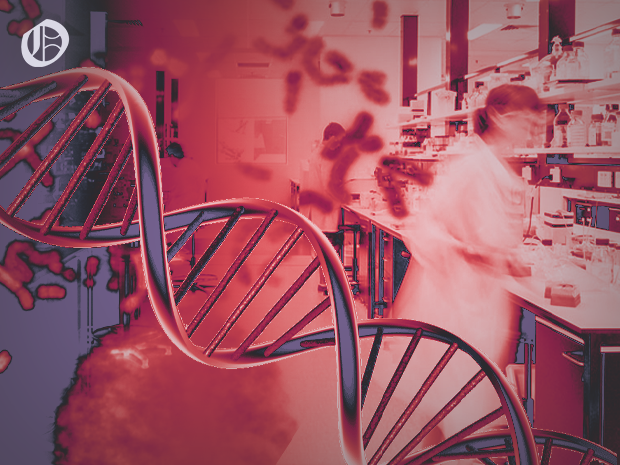How an ANU Breakthrough in Genetics Helped Exonerate a Mother Convicted of Murder

By Sacha von Thomann
Content Warning: Child loss
In 2018, a scientific discovery at ANU helped in exonerating parents whose children have died suddenly under unknown circumstances.
This discovery was made by ANU’s Professor Carola Vinuesa and Dr Todor Arsov, who studied specific variants in genes that would result in recurrent deaths within families.
One of the discoveries’ most famous beneficiary was Kathleen Folbigg, who served 20 years in prison after being wrongly convicted of murdering her four children in 2003. Folbigg always maintained her innocence.
Years later, doubt regarding her conviction prompted a reinvestigation of her case.For her defence, Folbigg underwent genomic sequencing, where a pathogenic variant of the “CALM 2” gene: GR 114 was discovered. The CALM 2 gene is crucial in keeping one’s heart beating through the production of calmodulin protein. The gene mutation therefore poses a great risk to one’s mortality.
On behalf of the NSW Crown, Professor Vinuesa from ANU gave evidence in a 2019 inquiry regarding Flobigg’s conviction. This was the second inquiry into Folbigg’s case, instigated following the discovery of the variant of the CALM 2 gene and the assertion by herself and her team that the gene was the probable cause of death of two of Ms Folbigg’s daughters.
The Professor stated that the presiding judge on the case said that there was a “great likelihood” that this variant caused the girls’ deaths rather than action taken by their mother. Once labelled as “Australia’s worst mother”, Ms Folbigg was exonerated of murdering her other children and was pardoned in 2023 after this discovery.
Observer interviewed Professor Carola Vinuesa who stated that “this discovery is a reminder that rare medical conditions can have a genetic explanation”. In Kathleen’s case, that particular gene mutation affects 1 in 35 million people, with only 135 cases reported worldwide.
Professor Viuensa additionally mentioned how the discovery could bring changes to the Australian legal system so that “the law is more responsive to scientific discoveries.” She emphasised the importance of genomic medicine in routine medical practices allowing for an easier diagnosis.
The ANU discovery additionally spurred international change. Following Folbiggs pardon, the American College of Medical Genetics and Genomics added three CALM genetic variants to the list of pathogenic genes to flag when sequencing an individual. The detection of these genes will then require reporting, allowing these individuals to get treatment to prevent life threatening illness.
The case has also placed pressure on an independent criminal case review commission to assess other potential failures of justice.
This discovery could prevent individuals from facing potentially unjust persecution. By establishing genetic factors as a potential contributing cause of sudden and unexplained deaths, the discovery reinforces the presumption of innocence in cases similar to Folbigg.
Whilst the ANU team was instrumental in the discovery it was ultimately an effort made possible through the collaboration of scientists in Australia, Denmark, Italy, Canada and The US.
As ANU pioneers advancements that bridge the gap between genetics and justice, the potential to prevent unjust persecution in cases of unexplained deaths emerges as a beacon of hope for families navigating the complexities of loss and legal scrutiny.
Graphics by: Annisa Zatalini
Know something we don’t know? Email news@anuobserver.org or use our anonymous tip submission.
If you have an issue with this article, or a correction to make, you can contact us at news@anuobserver.org, submit a formal dispute, or angry react the Facebook post.
Want to get involved? You can write articles, photograph, livestream or do web support. We’re also looking for someone to yell “extra!” outside Davey Lodge at 1AM. Apply today!









